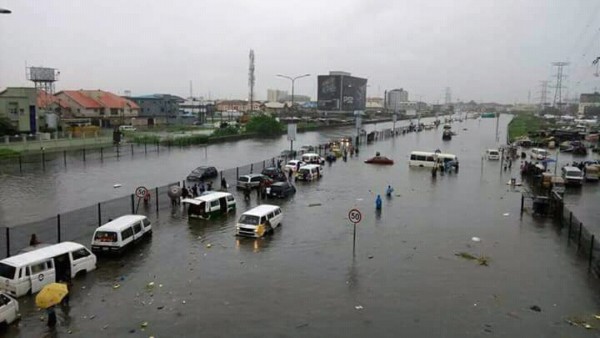Environment experts on Wednesday, February 12, 2020 advised state governments to put up measures to forestall negative impact of flooding ahead of the rainy seasons.

The environmentalists said that the reactionary measures put up by states at the thick of flooding incidents had not paid off as flooding causalities across the states had increased.
They gave the advice in Lagos against the backdrop of warnings of heavier rainfall in 2020 by the Nigeria Hydrological Services Agency (NHISA), which had earlier advised states to avoid fire brigade approach to flooding.
Toyin Oshaniwa, the Executive Director, Nature Care Resource Centre, (NCRC) Lagos, said: “Flooding will always present a problem to many states across the nation due to both natural and man-made factors.
“Lagos state by virtue of its low-lying landscape is highly prone to flooding.
“It is therefore essential for every state and stakeholders to act and take proactive measures in reducing the impacts of flooding in 2020.
“The strategy for 2020 flood management across states should be built on Private-Public Partnership, especially in the areas of restoration of urban storm water lines.
“This can be achieved through the construction and reclamation of canals and anti-drainage barriers,” he said.
He added that practicing flood prevention when flooding already occurred should be discarded saying it only amounted to window dressing with no positive bearing on the victims.
Similarly, Dr Ane Leslie-Adogame, of Sustainable Research and Action for Environmental Development (SRADev Nigeria), said that states should prioritise the issue of flooding.
Leslie-Adogame listed pragmatic steps towards checking flooding to include structural and non-structural approaches for effective flood risk assessment, management and adaptation.
He said that there was urgent need to strengthen flood disaster early warnings and advocacy mechanisms both at states and local levels in addition to the need for proactive measures to maintain drainage channels regularly.
“States or locations without drainage infrastructure should be given due attention, thus construction or upgrading of drainage channels.
“There should be a strong policy towards indiscriminate dumping of refuse and obstruction of drainage channels.
“There should be continuous cleaning and de-silting of primary and secondary canals across the state to allow free flow of storm water and evacuation of traders on drainage channels.
“There should be a clear budgetary provision for flood management in states.
“State governments should commission urgent urban flood vulnerability mapping, to aid proper flood disaster planning systems,” he said.
Ms. Omobola Eko, Convener, Urban Tree Revival Team (UTRT), said that the culture of tree planting and maintenance of forest buffer zones would aid the flood prevention campaign.
She said that states should raise awareness on the importance of wetlands through knowledge products.
Many states were devastated by the seasonal flooding that occurred in 2012, and subsequent years since then.
The Nigerian Meteorological Agency (NIMET) had predicted that the onset of the rainy season in the southern part of Nigeria would begin from Feb. 24 while in the North the earliest would be by June 22.
The rainfall would begin to cease from the North going by the prediction from Sept. 26 downwards to the South by Dec. 28.
By Uchenna Eletuo
